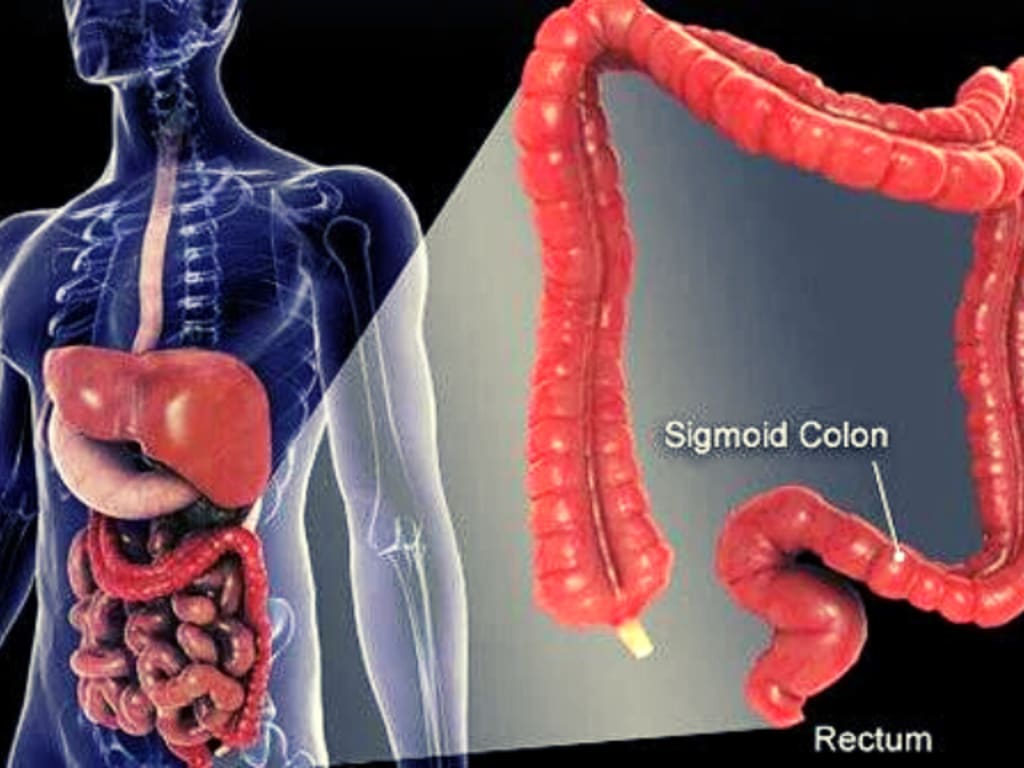What is Colon Cancer | How to prevent the Colon Cancer
In this article, we are discussed about colon cancer and things that prevent colon cancer

Before knowing prevention of colon cancer we have to know what actual colon is
Colon cancer is a type of cancer that starts in the cells lining the inner surface of the colon (large intestine). There are two types of colon cancer: adenocarcinoma and carcinoid tumors. Carcinoid tumors are rare forms of cancer and make up less than 1% of all cancers. Adenocarcinomas account for about 90 percent of colorectal cancers. The treatment cost of colon cancer in India is depend on stage of colon cancer.
Symptoms of Colon Cancer
There are no symptoms associated with early-stage colon cancer. If someone shows any of these symptoms, they should visit their doctor right away. These symptoms include:
1. Abdominal pain: Abdominal pain may be caused by many different medical conditions including diverticulitis, appendicitis, irritable bowel syndrome (IBS), ulcerative colitis, and Crohn's disease. Other causes of abdominal pain may include gallstones, urinary tract infections, kidney stones, liver problems, stomach ulcers, and ovarian cysts.
2. Bloating: When gas builds up in the intestines, bloating occurs. Symptoms of bloating include feeling full after eating just a few bites, belching, nausea, heartburn, flatulence, diarrhea, constipation, and weight loss. If left untreated, bloating can lead to chronic indigestion.
3. Constipation: Constipation occurs when stool moves slowly through the bowels. Stool may move less than once per day, causing infrequent defecation. A person who experiences constipation may have hard stools, incomplete evacuation, dry, hard stools, frequent urge to urinate, or straining while passing stool.
4. Diarrhea: Diarrhea is the passage of loose or watery stools at least three times a day. There are two types of diarrhea: secretory and inflammatory. Secretory diarrhea occurs when fluid passes out of the body via the anus. Inflammatory diarrhea occurs when the lining of the intestine becomes inflamed. Both types of diarrhea may cause dehydration and weight loss.
Causes of Colon Cancer
The causes of colon cancer may vary depending on the person who develops it. However, the following factors increase the risk of developing colon cancer:
• Age—the older a person gets, the higher his or her chances of getting colon cancer. Men over 50 years old have a 40 percent chance of developing colon cancer, while women over 60 have a 20 percent chance.
• Family history—if a parent, sibling, child, aunt, uncle, cousin, grandparent, or close relative was diagnosed with colon cancer before age 65, then you are at increased risk of developing colon cancer yourself.
• Genetics—genetic mutations that cause certain inherited conditions such as familial polyposis coli (FAP) and hereditary nonpolyposis colon cancer (HNPCC) increase the likelihood of developing colon cancer.
• Diet—a diet high in red meat increases the risk of developing colon and rectal cancers. Eating lots of processed foods, fried food, and sodas also raises the risk of developing colon cancers.
Prevention of Colon Cancer
1. Fiber
Fiber is a type of carbohydrate that cannot be digested by humans, therefore it helps prevent constipation and bowel problems. A diet high in fiber is linked to lower risks of cancers, heart disease, diabetes, obesity, and many other physical ailments.
2. Vitamin C
Vitamin C is a water-soluble vitamin that is necessary for proper immune system function and wound healing. Vitamin C is known to help fight off harmful bacteria and viruses, and may even reduce risk of certain types of cancer.
3. Folate
Folate is a B vitamin that assists in DNA synthesis and repair, and may improve cardiovascular health. Folic acid is a synthetic form of folate that is added to food products and supplements.
4. Beta Carotene
Beta carotene is a precursor to vitamin A, which is essential for maintaining healthy skin, eyes, and mucous membranes. Beta carotene also promotes bone health and cellular growth.
5. Zinc
Zinc is a trace mineral that is necessary for normal growth and development, immune system function, and hormone production. Low levels of zinc have been associated with increased risk of prostate cancer.
6. Selenium
Selenium is an antioxidant that prevents damage caused by free radicals. It is also critical for thyroid function and maintenance of healthy hair, nails, and skin.
7. Vitamin D
Vitamin D is a fat-soluble vitamin that enhances immunity and supports strong bones. It is produced naturally by our bodies in response to exposure to sunlight, and is commonly supplemented through foods like fish liver oil, fortified milk, and eggs.
About the Creator
Ilham Sheikh
Hello Everyone.
I am Ilham Sheikh and I am pursuing my doctorate. I love to write, Mostly I write on health related niche.






Comments
There are no comments for this story
Be the first to respond and start the conversation.